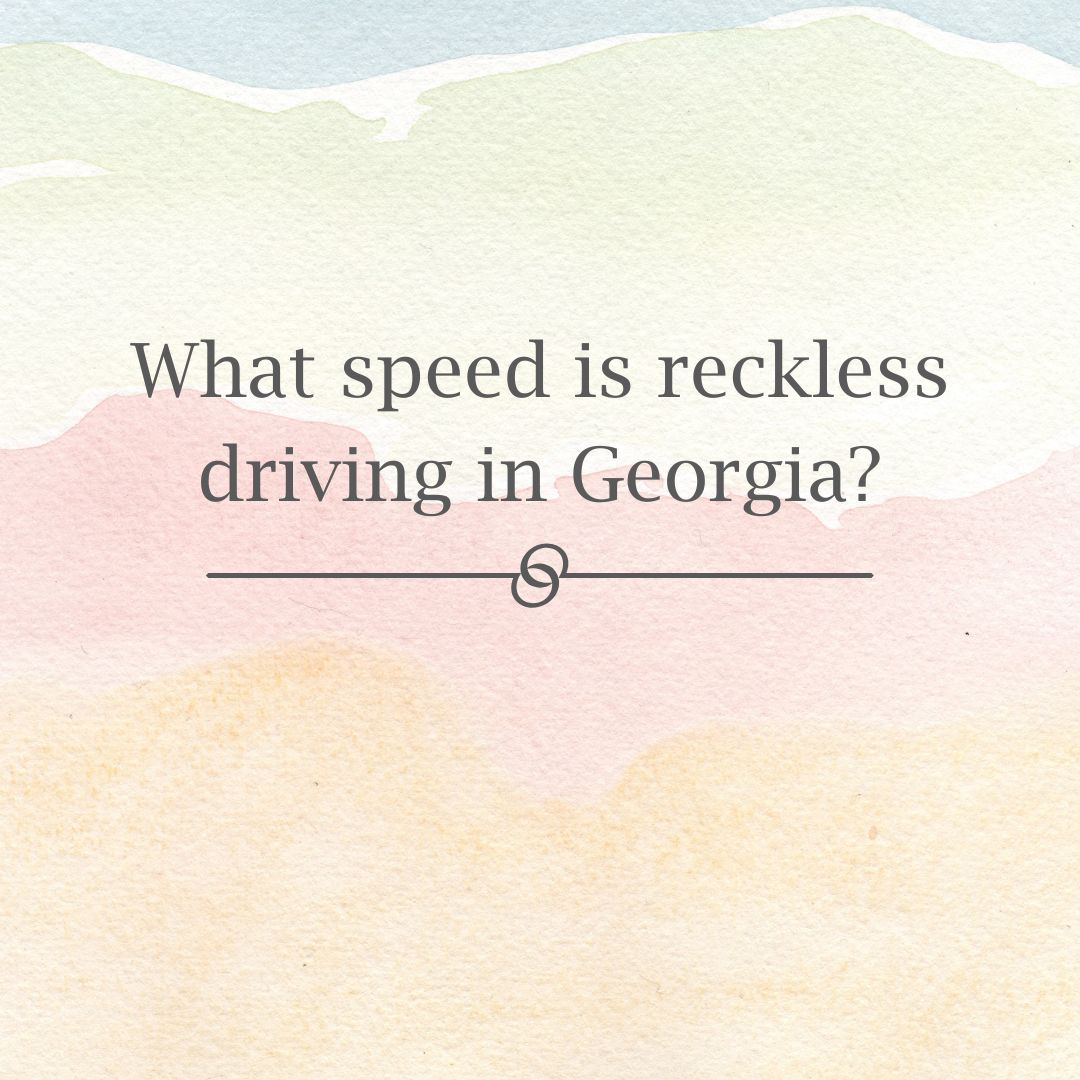
What Speed is Reckless Driving in Georgia?
Understanding the Speed Limit for Reckless Driving in Georgia
“What speed is reckless driving in Georgia?” is a question often asked by residents and visitors alike.
The answer is not as straightforward as you might want: there’s no minimum speed for reckless driving. This is because reckless driving is determined by several factors including the traffic conditions, your driving behavior, and of course the speed you were going.
Generally speaking, however, driving at a speed that is significantly higher than the posted limit or too fast for conditions, coupled with a reckless disregard for the safety of other people or property, can be considered reckless driving in Georgia.
Let’s take a closer look at speeding and reckless driving in the Peach State.
Speeding Versus Reckless Driving in GA
While speeding is a common traffic violation, reckless driving is a more serious offense.
Speeding becomes reckless driving when it endangers the life, limb, or property of others.
It’s not necessarily about the exact speed you’re driving, but rather the manner in which you are operating your vehicle.
What is Reckless Driving in Georgia
Reckless driving in Georgia is defined as driving with a reckless disregard for the safety of persons or property.
This can include excessive speeding, aggressive driving behaviors like tailgating, or other dangerous maneuvers.
It is also used as a backup charge in some DUI cases – if the state does not feel comfortable proving the DUI or there are other mitigating factors, the prosecutor may agree to reduce the DUI to a Reckless Driving charge.
Is Reckless Driving a Felony in Georgia
Reckless driving is not typically classified as a felony in Georgia.
However, it is a serious misdemeanor offense.
That said, if the reckless driving leads to serious injury or death, it could potentially be escalated to a felony charge.
Reckless Driving Georgia Statute
Reckless driving is found in the Georgia statute O.C.G.A. § 40-6-390.
In it, reckless driving is defined as “any person who drives any vehicle in reckless disregard for the safety of persons or property commits the offense of reckless driving.”
Reckless Driving Georgia Penalties
Next, let’s look at some penalties of a reckless driving charge.
How Many Points is Reckless Driving in GA
In Georgia, a reckless driving conviction will add four points to your driving record.
Accumulating 15 or more points in a 24-month period can lead to a suspension of your driving privileges, for drivers 21 or older.
For drivers under 21, any 4 point conviction, such as reckless driving, will automatically suspend your license.
How Long Does Reckless Driving Stay on Record Georgia
A reckless driving conviction will stay on your Georgia driving record forever, but for the purposes of reporting, it will appear on your public driver’s history for 7 years.
However, it can impact your insurance premiums for even longer.
And, prosecutors will always be able to see back to the beginning of your driving record and thus it will show up, no matter how long ago it occurred.
Whether they use that information against you or not is up to them – but just know that they can, and often do. Especially if you have another reckless driving charge many years later on.
Reckless Driving First Offense in GA
Even for a first offense, the penalties for reckless driving in Georgia are severe.
They can include a fine of up to $1,000, imprisonment for up to 12 months, or both.
Additionally, you may face probation, community service, and mandatory driver’s education classes.
This is why we always recommend you at least speak with a lawyer before your first court date, to find out your options and to hire the lawyer, if you are a good fit.
If you’re in the North Metro Atlanta area, feel free to reach out to us here at Your Law Firm to start the conversation. We’re here to serve.
The Bottom Line
While there is no definitive speed that constitutes reckless driving in Georgia, any speed that endangers others can be considered reckless.
If you are facing a reckless driving charge, it’s important to consult with an experienced local attorney to understand your rights and potential defenses.